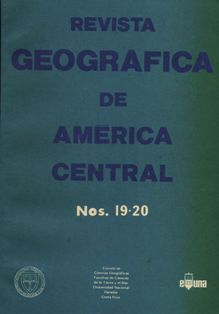ACTITUDES HACIA LA ACUACULTURA EN ALGUNAS COMUNIDADES DEL GOLFO DE NICOYA, COSTA RICA
Keywords:
ACUACULTURA, GOLFO DE NICOYA, COSTA RICA, PESCAAbstract
General attitudes toward aquaculture and specifically their interest in and the capture of mullet (Migil spp) was the determined by interviewing 154 artisanal fishermen and 29 salt-evaporation pond owners along the eastern shore of the Gulf of Nicoya. The majority of the fishermen, who likely are already overexploiting the fishery resource of the gulf, knew nothing about aquaculture. Nevertheless, they indicated that agriculture (which includes aquaculture) would be an alternative economic activity in the event that they couldn’t continue fishing. Although mullet is not highly valued on the market, it is very common and utilized by this social group. During winter (rainy season) the salt-evaporation ponds are not utilized and their owners expressed interest in cultivating mullet and shrimp during that season. Aquaculture could help solve the overexploitation problems in the traditional fishery, the overproduction of salt and the underutilization of the salt=evaporation ponds during the rainy season.
Downloads
How to Cite
Issue
Section
License
Proposed policy for journals offering Open Access
Authors publishing their works in the Journal acknowledge and agree to the following terms:
a) Authors retain the copyrights to their works and guarantee the Journal the right to be the first to publish their works, under the Creative Commons License Attribution-NonCommercial-ShareAlike 4.0 International, CC BY-NC-SA 4.0 International (https://creativecommons.org/licenses/by-nc-sa/4.0/deed.es), which allows others to share works upon complying with the acknowledgment of authorship and mention of the Journal as the original publisher of the work.
b) Authors are permitted to separately establish additional agreements for the non-exclusive distribution of the official edition of the work published in the Journal (for example, authors may desire to place the work in an institutional repository or incorporate it into a book that is to published elsewhere) so long they acknowledgment to recognize the Journal as the original publisher. The aforementioned additional agreements must respect the terms of the non-profit character and sharing philosophy of the original license (CC BY-NC-SA 4.0 International, https://creativecommons.org/licenses/by-nc-sa/4.0/deed.es).
c) Authors are encouraged to archive the post-print or editor/PDF version in Open Access repositories.






 REVGEO is licensed under https://creativecommons.org/licenses/by-nc-sa/4.0/deed.es
REVGEO is licensed under https://creativecommons.org/licenses/by-nc-sa/4.0/deed.es
.svg_4.png)

_(1).png)
_(1)_(1)_(1)_1.png)
(2)(1)(1)(1).png)
